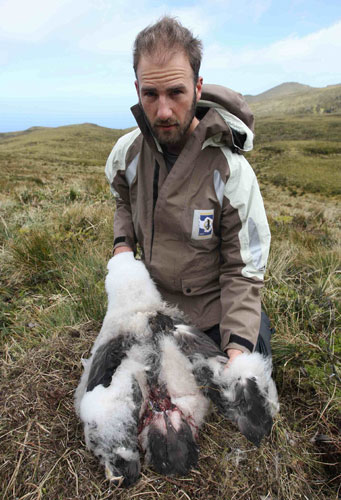Bob Headland (Scott Polar Research Institute, University of Cambridge, UK), writing in the journal Polar Record, has produced a descriptive historical account of the introduced mammals of southern high latitudes. The publication has a particular interest for the conservation of albatrosses and petrels since many are threatened at their island breeding sites by introduced predators such as feral pigs, feral cats and rodents. A number of eradication programmes for such animals are ongoing at or are planned for southern islands, as regularly reported in ACAP Latest News.
The paper's abstract follows:
"A concise account of exotic terrestrial mammals known to have been introduced in Antarctica and the 19 peri-Antarctic islands is provided. This includes the entire region currently relevant to the Scientific Committee on Antarctic Research. Of the 24 introduced species 10 are extant at one or more locations in 2011. Some species have had a widespread distribution and others are represented by one, or a few, individuals. The majority arrived as deliberate introductions but that of some was adventitious. Details of their dates of introduction, current status, and indications of environmental effects, are tabulated. Current eradication programmes are noted."

Rob Ronconi holds a Tristan Albatross Diomedea dabbenena chick that has been attacked by
introduced House Mice Mus musculus on Gough Island in 2009
Photograph by Peter Ryan
Click here to access ACAP's eradication guidelines for introduced mammals at breeding sites of ACAP-listed seabirds. The Agreement has also produced biosecurity and quarantine guidelines for ACAP breeding sites (click here).
Reference:
Headland, R.K. 2011. History of exotic terrestrial mammals in Antarctic regions. Polar Record
doi: 10.1017/S0032247411000118.
John Cooper, ACAP Information Officer, 12 December 2011

 English
English  Français
Français  Español
Español